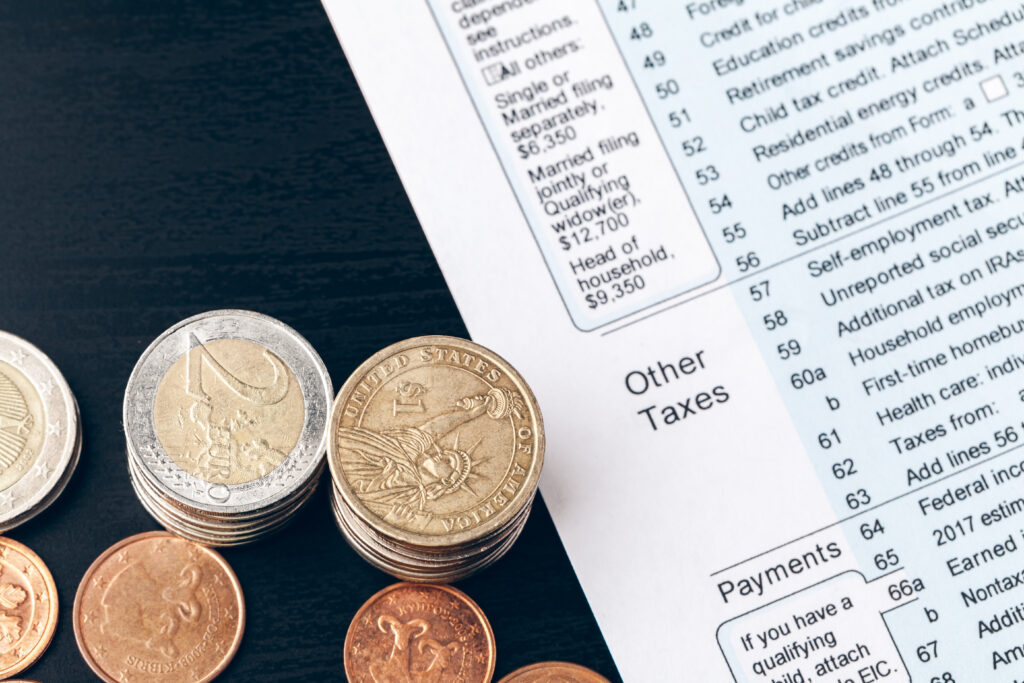In this article, we go over are boat loans tax deductible, explaining when interest may qualify, what conditions the IRS considers, and how to structure your purchase and financing if you want to take advantage of possible deductions.
For many buyers, financing a boat is an exciting step, but the question of taxes often comes soon after. Boats are typically seen as luxury purchases, but in certain cases, they can qualify for deductions when used as a primary or secondary home, or when used in specific business applications. Let’s take a closer look.

Understanding Interest Deductions in General
The IRS allows interest on certain loans to be deducted if the financed item qualifies as a home or is used for business purposes. Mortgage interest is a familiar example—if you buy a home with a loan, you can often deduct the interest from your taxable income.
A similar principle can apply to a boat, but only under very specific circumstances. Simply financing a boat for recreation does not make the interest deductible.

When a Boat May Qualify as a Home
One of the most common scenarios where boat loan interest can be deductible is when the boat meets the IRS definition of a home. According to IRS Publication 936, a boat can be considered a qualified home if it has:
- Sleeping quarters
- A cooking area
- A toilet (head)
Many larger boats, yachts, and cruisers meet these criteria. Smaller fishing boats, runabouts, or pontoons without these facilities usually do not.
If your financed boat qualifies as a home and is either your primary or secondary residence, the interest on your loan may be deductible under the mortgage interest deduction rules. This is subject to limitations based on loan size and your personal tax situation.
Primary vs. Secondary Residence Rules
You can only have one primary residence for tax purposes, but you may designate a second home as a qualified residence for mortgage interest deductions. Many boat owners treat their boat as a second home if it has the necessary facilities.
Key points to remember:
- You must use the boat as a residence for part of the year.
- Only interest on up to $750,000 of total qualified debt (for loans after December 15, 2017) is deductible for married couples filing jointly.
- The loan must be secured by the boat itself.
Consult a tax professional to ensure you meet all requirements before claiming this deduction.

Business Use of a Boat
Another scenario where boat loan interest might be deductible is when the boat is used primarily for business purposes. Examples include:
- A charter fishing boat
- A sightseeing or tour boat
- A vessel used for on‑water instruction or training
In these cases, the boat is considered a business asset, and interest on the loan may be deductible as a business expense. However, strict record‑keeping is essential. You’ll need to track:
- Percentage of use for business vs. personal recreation
- All expenses related to operating the boat
- Income generated from business activity
This area of tax law can be complex, so it’s wise to involve an accountant familiar with marine businesses.
Deductibility Does Not Apply to Everyone
If your boat is solely for personal recreation and doesn’t meet the criteria as a qualified home or business asset, the interest on the loan is not deductible. There’s no general tax break just for buying a boat, even with financing.
That said, other costs—such as state sales tax paid at the time of purchase—may be deductible in some situations. For example, if you itemize deductions, you may be able to include large one‑time state sales tax on major purchases. Check IRS guidelines for specifics or speak with a tax preparer.

How to Keep Records for Potential Deductions
If you think your boat might qualify as a home or business asset, keep organized records:
- Copies of your loan agreement
- Proof the boat has sleeping, cooking, and toilet facilities (for home qualification)
- Documentation of time spent onboard
- Receipts for maintenance, marina slips, and insurance
- Logs of business activities and income, if applicable
This documentation will be vital if the IRS ever questions your deduction.
The Role of Financing in Tax Strategy
Choosing the right loan and lender doesn’t just affect your monthly payment—it can also influence your tax situation. At Float Finance, we help buyers consider the full picture:
- Will the boat qualify as a second home?
- Are you planning to use it for charters or business?
- How does your down payment and loan amount affect interest deductions?
While we don’t provide tax advice, we work closely with buyers to make sure their financing aligns with their long‑term plans.

Why Specialized Lenders Matter for Complex Purchases
Traditional lenders may not understand why you’re asking about tax implications or second home qualifications. At Float Finance, we’re used to these questions. We’ve helped clients finance everything from liveaboard trawlers to high‑end yachts, ensuring they have clear documentation to present to their tax professionals.
We provide boat financing options that can include unique term lengths, competitive rates, and guidance through the paperwork so that your tax strategy is fully supported.
Example Scenarios
Scenario 1: A Second Home on the Water
A couple purchases a 34‑foot cruiser with sleeping cabins, a galley, and a head. They finance $150,000 and use the boat every summer as a second home. They work with their accountant to confirm it qualifies for the mortgage interest deduction, and the interest on their loan becomes part of their annual itemized deductions.
Scenario 2: A Charter Fishing Business
An experienced angler buys a 28‑foot center console and starts offering local charters. The boat is financed through a marine loan. Because the boat is used exclusively for business, the interest on the loan is deductible as a business expense, alongside fuel, maintenance, and advertising costs. Detailed records are kept for tax filing.
Scenario 3: A Recreational Runabout
A family finances a 20‑foot bowrider for weekend fun. It has no overnight facilities and is used purely for recreation. In this case, the interest on the loan is not deductible. They still enjoy the boat, but they understand there’s no tax break associated with the financing.

Things to Discuss With Your Tax Professional
Tax laws change, and individual circumstances vary widely. Before claiming any boat loan interest deduction, ask your tax advisor:
- Does my boat qualify as a second home under current IRS guidelines?
- Do I have the right documentation for a deduction?
- Will state or local tax laws affect my eligibility?
- Should I track my time on the boat to strengthen my case?
- What percentage of business vs. personal use should I record for a charter boat?
Clear answers will help you avoid problems down the road.
Conclusion
So, are boat loans tax deductible? They can be—but only if your boat qualifies as a home with sleeping, cooking, and toilet facilities, or if it’s used primarily for business purposes with proper records. Recreational boats without these features generally do not qualify.
At Float Finance, we make the financing process clear and straightforward, providing the documentation you need to support your tax strategy. When you’re ready to finance a boat that fits your lifestyle—and possibly your tax planning—we’re here to help you navigate every step.
